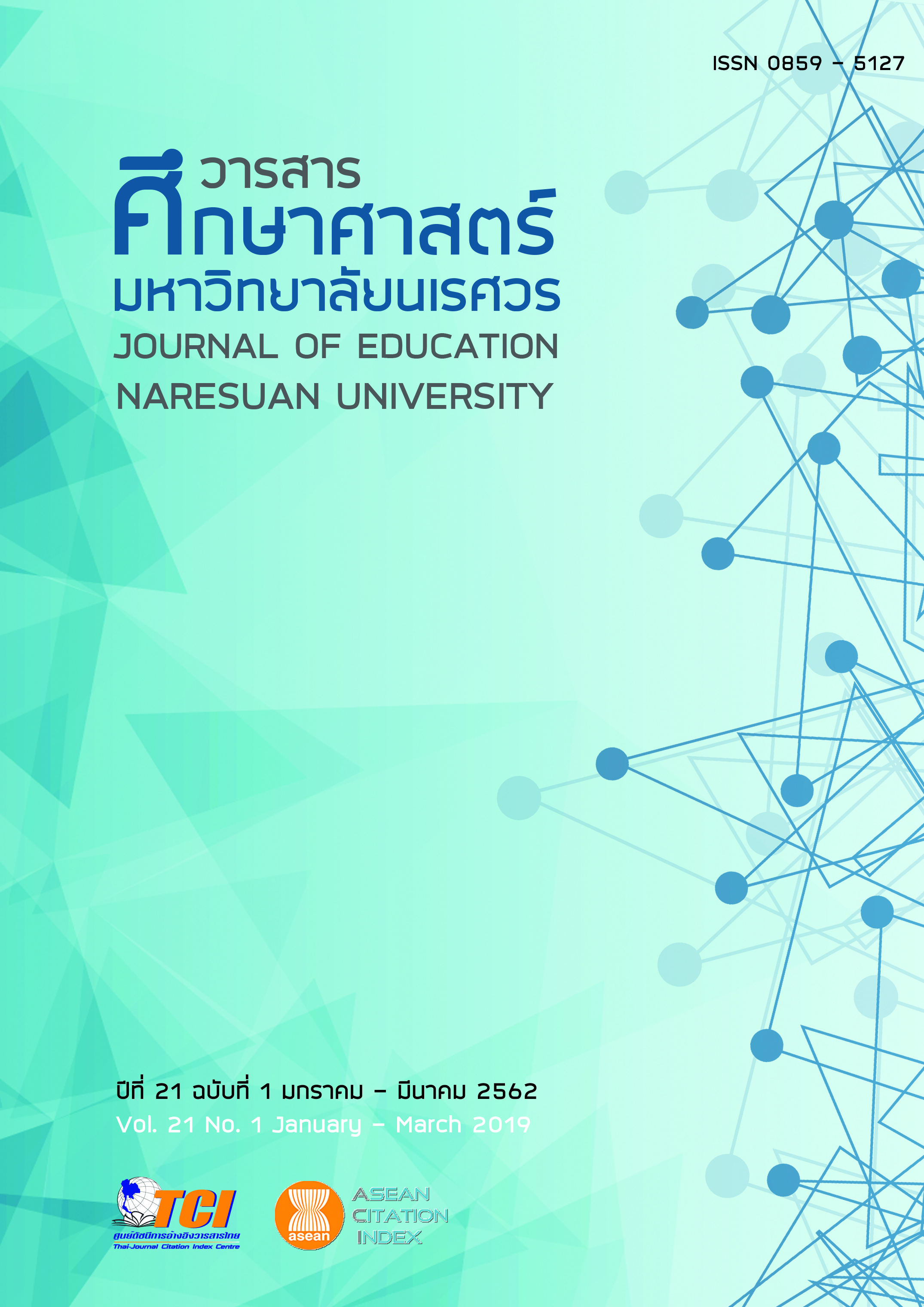การส่งเสริมการแก้ปัญหาอย่างสร้างสรรค์ด้วยการจัดการเรียนการสอนแบบโครงงานเป็นฐานบูรณาการกับเฟซบุ๊ก (PROMOTING CREATIVE PROBLEM SOLVING BY PROJECT-BASED LEARNING INTEGRATED WITH FACEBOOK)
Main Article Content
Abstract
การส่งเสริมการแก้ปัญหาอย่างสร้างสรรค์ด้วยการจัดการเรียนการสอนแบบโครงงานเป็นฐานบูรณาการกับเฟซบุ๊ก เป็นแนวทางที่เหมาะสำหรับการจัดการเรียนการสอนทุกระดับชั้น โดยเฉพาะในระดับอุดมศึกษา ซึ่งเป็นวิธีการที่สามารถส่งเสริมพัฒนาความคิดแก้ปัญหาอย่างสร้างสรรค์ได้ โดยใช้กระบวนจัดการเรียนการสอนแบบโครงงานเป็นฐานบูรณาการกับเฟซบุ๊ก ผู้เรียนสามารถเรียนได้ตามความสนใจของตนเอง ด้วยการลงมือปฏิบัติ ศึกษา ค้นคว้า หาความรู้ ในเรื่องที่ตนสนใจ และต้องการหาคำตอบ และมีกระบวนการปฏิบัติอย่างเป็นขั้นตอน ต้องอาศัยความคิดสร้างสรรค์ และการแก้ปัญหาด้วยวิธีการใหม่ และหลากหลาย ซึ่งสามารถทำให้ผู้เรียนเน้นเกิดการคิดแก้ปัญหาอย่างสร้างสรรค์ได้ อีกทั้งมีการประยุกต์ใช้เฟซบุ๊กเป็นเครื่องมือเป็นสื่อในด้านการติดต่อสาร
ด้านการแลกเปลี่ยนเรียนรู้ หรือแม้กระทั้งในการจัดการเรียนการสอน เช่น การสร้างเนื้อหา การจัดการเรียนการสอน การมอบหมายงาน กิจกรรม แบบฝึกหัด ครูผู้สอนสามารถติดตามงานทาง เฟซบุ๊กได้ และยังสามารถนำเทคโนโลยีต่างๆ เข้ามาช่วยเพื่อเพิ่มศักยภาพและประสิทธิภาพในด้านการเรียนการสอนให้มีประสิทธิภาพมากยิ่งขึ้น
PROMOTING CREATIVE PROBLEM SOLVING BY PROJECT-BASED LEARNING INTEGRATED WITH FACEBOOK
Promoting Creative problem solving by Project-Based learning integrated with Facebook. A way that is suitable for all levels of teaching, especially in higher education, which is a method that can promote the development of problem-solving ideas, create a better example. Has using learning management process, Project-Based learning integrated with Facebook. Students can learn according to their interests. Research, Knowledge in their interests, and want to find answers and practical process step-by-step. This requires creative thinking and problem solving with new and varied methods, which can cause the learners focus on problem-solving thinking occurs, creatively and with Facebook applications is a tool as a substance in the media contact. To learn and Exchange side, or even in such teaching content teaching assignments, activities, practice. Teachers can track it via Facebook, and also introduced technology to help to increase
the potential and effectiveness in the field of teaching, more productive.
Article Details
The owner of the article does not copy or violate any of its copyright. If any copyright infringement occurs or prosecution, in any case, the Editorial Board is not involved in all the rights to the owner of the article to be performed.
References
Chareonwongsak, K. (1999). Looking forward: The Thailand vision in the years 2016. Bangkok: Success Media. [in Thai]
Davis, Kenneth C. (1983). Discretionary justice: A preliminary inquiry. Louisiana State University Press: Baton Rouge.
Department of Education. (2001). Facilitating student - centered learning. Bangkok: Ministry of Education. [in Thai]
Elizabeth F. Churchill. (2012). Social media meaning. Proceeding of the 2012 international workshop on Socially-aware multimedia. New York: United States of America.
Fried-Booth, D. (2002). Project work. New York: Oxford University Press.
Hutamarn, S, & Koseeyaporn, P. (2015). The development of learning management via project-based learning with mentor under constructivist theory for classical control system subject. Journal of science education Naresuan University, 17(2), 108-122. [in Thai]
Kanokchaisakul, S. (2010). Social networking website. Journal of Management, 30(1), 29-32. [in Thai]
Khoncheuarat, W. (2004). The 4MAT cycle learning activities. Retrieved October 12, 2516, from https://chiron.vadosta.edu/whuitt/COL/instruct/4mat.html [in Thai]
Panich, W. (2013). The teacher to student create flipped classroom. Bangkok: S. R. Printing Mass Product. [in Thai]
Pongaen, W., Pratumsuwan, P., & Hutamarn, S. (2014). Project-based learning. Bangkok: King Mongkut’s University of Technology North Bangkok. [in Thai]
Pookiate, L. (2001). Project for learning: Principles and activity management guideline. Bangkok: Faculty of Education Chulalongkorn University. [in Thai]
Phanmanee, A. (2014). Training for creative thinking. Bangkok: Chulalongkorn University. [in Thai]
Plitakul, P. (2017). Learning management based on project-based learning for music teaching experiences of current students at the Faculty of Music, Silpakorn University. Veridian E-Journal, Silpakorn University, 10(2), 694-708. [in Thai]
Siritavi, J. (1999). Project: New alternative option for building intellectual. Academic Journal, 2(8), 35-37. [in Thai]
Srivihok, A. (2008). The impact of the electronic ecological education circles. Bangkok: Kasetsart University. [in Thai]
Torrance, E. P. (1962). Guiding creative talent. New Jersey: Prentice Hall.
Wongsuwan, S. (1999). Learning for 21st century: learning which students construct their own knowledge through project. Bangkok: Ministry of Education. [in Thai]


